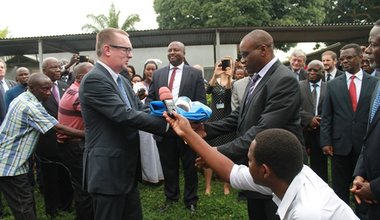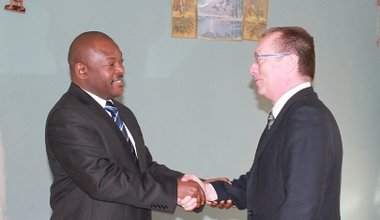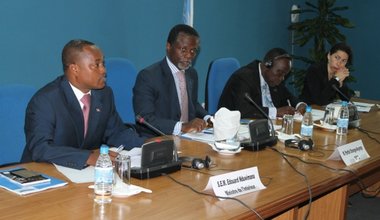IMF Executive Board Completes Sixth Review Under the Extended Credit Facility Arrangement for Nation
Bujumbura, July 14, 2011_The Executive Board of the International Monetary Fund (IMF) today completed the sixth review of Burundi's economic program supported by the Extended Credit Facility (ECF).
The approval will enable an immediate disbursement in an amount equivalent to SDR 6.6million (about US$10.5 million), bringing total disbursements under the arrangement to an amount equivalent to SDR 46.2 million (about US$73.2 million).
In completing the review, the Board approved an augmentation of access by an amount equivalent to SDR 5.0 million to mitigate the impact of the food and fuel crisis on the balance of payments, and an extension of the ECF arrangement to end-January 2012. Burundi's ECF Arrangement was approved on July 7, 2008 by the Executive Board (See Press Release No. 08/167).
Following the Executive Board's discussion, Mr. Naoyuki Shinohara, Deputy Managing Director and Acting Chair, said:
"Performance under the ECF-supported program has been satisfactory, and Burundi's economic outlook is broadly positive. The most imminent policy challenge is to preserve macroeconomic stability while cushioning the impact of rising commodity prices.
"The revised 2011 program appropriately addresses priority social needs in the context of needed fiscal consolidation. However, the fuel subsidy should be better targeted to the most vulnerable groups. Over the medium term, enhancing revenue mobilization, prioritizing spending, and relying on grants and highly concessional financing will be key to the sustainability of the fiscal position.
"Coherence of monetary and fiscal policies is a requirement for effective macroeconomic policymaking. With the recent fuel and food price increases feeding into domestic prices, monetary policy should be tightened to curb price pressures and better anchor inflation expectations.
"To raise long-term growth, it will be critical to accelerate structural reforms, particularly in the coffee and financial sectors. Improving governance will be important for continued donor support," Mr. Shinohara added.
 UN
UN





